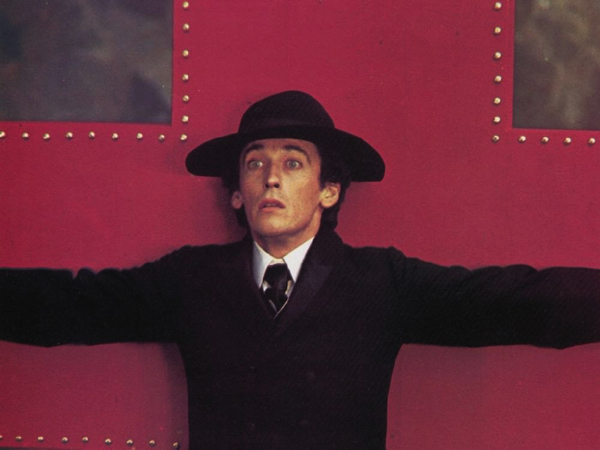
Dir.: Ken Russell; Cast: Robert Powell, Georgina Hale, Les Montague, Rosalie Crutchley, Gary Rich, Richard Morant, Antonia Ellis, Peter Eyre, David Collings; UK 1974, 115 min.
Mahler is a picture of elegant restraint compared with the crudely salacious Gothic, Lisztomania and Tommy. Ken Russell’s portrait of Austro-Hungarian composer and conductor Gustav Mahler (1860-1911) is full of poignancy, Robert Powell conveying the composer’s inner angst and but also his finesse, despite the endless turmoil of his troubled personal life that was pierced by tragedy that defines but never quite engulfs this subdued but redolent arthouse masterpiece with its nuanced colour palette that reflects the highs and lows . Being Jewish, Mahler had to convert to Catholicism in order to be chief-conductor of the Vienna Court Opera, even though a campaign was launched to have him removed from the position. In 1902 he married Alma Schindler, a fellow composer, who was twenty-five years his junior. Until near the end of his life, she insisted he refrain from composing. The couple had two daughters, one of them, Maria, died in 1907 of scarlet fever. Russell tells his life story in flashbacks, starting with his last journey to Vienna, a month before his death, after he had returned from New York.
The story begins as Mahler is returning to his home in Austria with Alma (Hale) after time spent in New York conducting at the Metropolitan opera. In the first flashback, Mahler (Powell) is pictured composing in Maiernigg, his summer house, where he demands absolute quietness for his creative process to flow. Next we see little Gustav (Rich) at home with his parents, his father Bernhard (Montague) abusing his mother Marie (Crutchley) so badly that the boy runs away. Gustav was very close to his brother Otto (Eyre), whose financial worries and later contributed to his suicide, just after Mahler’s appointment at the Vienna Court Opera.
Meanwhile back in the train, Gustav is suddenly confronted with Alma’s lover Max (Morant), a character representative of Alma’s real lover, the architect Walter Gropius whom she would marry after Mahler’s death. Mahler is so traumatised by seeing Max, he faints and dreams of his own death. The couple discuss their troubled marriage set against another flashback, Mahler’s fight to become Chief Conductor at the Court Opera. These emotional scenes jostle with sequences picturing the nervous breakdown of his friend, the composer Hugo Wolff (Collings).
Cosima Wagner (Ellis) appears as an Aryan Viking amazon, barring Mahler from becoming Chief Conductor. We witness the fight between the Alma and Gustav, just after the death of Maria, Alma complaining Mahler provoked her fate with his composition the KinderTotenLieder. In the end, Mahler and Alma reconcile, and Max leaves the train. In real life, Mahler shared his wife with Gropius for the last two years of his life, after having met Freud in Leyden in August 1910 for a consultation – the latter episode surprisingly not part of Russell’s feature.
DoP Dick Bush (Yanks) uses vibrant colours for certain sequences, such as Cosima’s Valkyrie appearance, but whenever Mahler’s music is played the palette is suffused with mellow warmth. A dull sepia for the train journey underlines the funereal atmosphere of the whole endeavour. Powell and Hale’s onscreen chemistry is real and convincing, but Russell lets Mahler’s music take centre stage. AS
NOW ON PRIME VIDEO